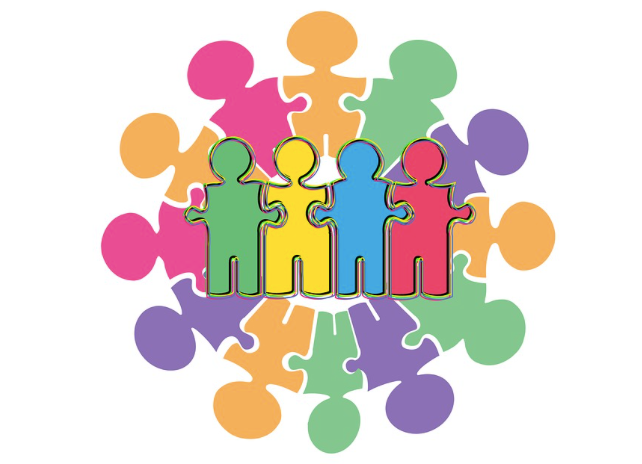MINDFULNESS BLOG HEATH BLOG KINDNESS BLOG QUALITY OF LIFE BLOG
The Up Deeds blog
Our blog posts are created by those that share the same call to give back to others.
We give them the full credit they are due, and links so you can benefit from other information they share.

Defining DEI: Diversity, Equity, and Inclusion
By Up Deeds
Diversity, Equity, and Inclusion (DEI) are interrelated concepts aimed at promoting fair treatment, representation, and participation for all individuals, regardless of their backgrounds.
1. Diversity refers to the presence of differences within a given setting, including race, ethnicity, gender, age, sexual orientation, disability, and more.
2. Equity involves ensuring fair treatment, access, opportunity, and advancement for all individuals, while striving to identify and eliminate barriers that have historically led to unequal outcomes.
3. Inclusion is about creating environments in which any individual or group can feel welcomed, respected, supported, and valued.
Perspectives on DEI
Perspectives on DEI can vary significantly among individuals and communities:
- Positive Views: Many see DEI as essential for fostering innovation, creativity, and improved decision-making. These individuals argue that diverse teams provide a broader range of perspectives, which can lead to better problem-solving and more effective policies. For instance, businesses that prioritize DEI often enjoy higher employee engagement and improved financial performance.
- Negative Views: Conversely, some individuals critique DEI initiatives, viewing them as divisive or as reverse discrimination. Critics may argue that DEI efforts can lead to "tokenism," where individuals from marginalized groups are included superficially but do not have real influence. Others believe that such initiatives promote inequity by prioritizing group identity over personal merit.
History of DEI
The term DEI has gained prominence in recent decades, with roots in the civil rights movements of the 1960s, which advocated for racial and social justice.
- Federal Government Initiatives: The federal government began formal efforts to address diversity and inclusion in the workplace with the passage of the Civil Rights Act of 1964, which outlawed discrimination based on race, color, religion, sex, or national origin. More structured DEI initiatives were developed in the 1990s and gained momentum in the 2000s as organizations recognized the business and social imperatives for creating diverse and inclusive environments.
Positive Results of DEI
1. Improved Organizational Performance: Companies with diverse teams often outperform their peers. A McKinsey report found that firms with higher diversity in leadership roles were 36% more likely to achieve above-average profitability.
2. Social Cohesion: DEI initiatives promote understanding and cooperation among different groups, leading to more cohesive communities. Programs that emphasize inclusion can reduce tension and build trust among diverse populations.
Negative Results of DEI
1. Resistance and Backlash: Some organizations face backlash against DEI initiatives, leading to polarization within teams. For example, workplace tensions can arise when individuals perceive DEI efforts as undermining merit-based hiring.
2. Superficial Compliance: Organizations might engage in DEI efforts merely as a checkbox activity without a real commitment to change. This can result in frustration and disillusionment among employees who seek genuine inclusivity.
Impact Studies
Numerous studies have examined the effects of DEI on communities and society:
- Social Research: Research from the American Psychological Association indicates that inclusive workplaces lead to higher job satisfaction among minority employees and enhanced innovation.
- Community Studies: Studies highlight that communities with strong DEI frameworks see increased civic engagement and lower crime rates as diverse groups feel more connected and supported.
Societal Benefits of DEI
Overall, the evidence suggests that, on a societal basis, DEI initiatives can be beneficial. For example, diverse workforces tend to be more adaptable and resilient, contributing to broader economic growth. Moreover, societies that prioritize equity and inclusion often experience lower levels of inequality and enhanced quality of life.
In summary, DEI is a complex and sometimes contentious issue, with both advocates and critics providing valuable perspectives. However, the overall trend points toward DEI as a driver of positive change within organizations and communities.
Would you like to receive a monthly uplifting and helpful blog?
That's great to hear, just click the button to sign up.
